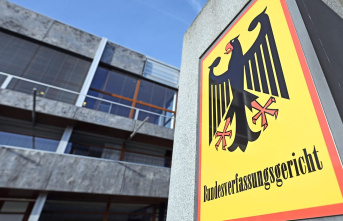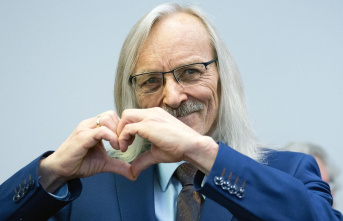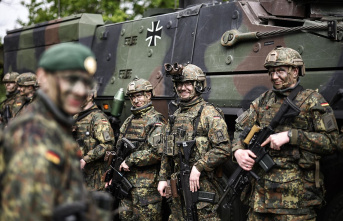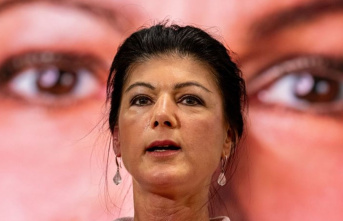After a long and bitter dispute, the Bundestag will decide today on the traffic light coalition's electoral law reform. The project is strictly rejected by the Union and the Left Party. With the reform, the Bundestag, which has grown to 736 MPs, is to be permanently reduced to 630 seats from the next election.
Originally, the traffic light even wanted to reduce parliament back to the target size of 598 MPs specified in the Federal Elections Act. After the Union had rejected the first proposal from the SPD, Greens and FDP, the traffic light groups came up with the new variant, which caused even more anger, especially among the CSU.
The CSU in particular opposes this
The aim is to reduce the size of Parliament by completely dispensing with overhang and compensatory mandates. So far, these have caused the Bundestag to be bloated. Overhang mandates arise when a party wins more seats in the Bundestag via direct mandates than it is entitled to based on the result of the second vote. You can keep those seats. The other parties receive compensatory mandates in return. According to the new rules, it may happen in the future that an applicant wins his constituency directly, but still does not get into the Bundestag. This angers the CSU in particular.
In addition, according to the traffic light draft, a strict five percent clause should apply. The so-called basic mandate clause does not apply. So far, it has ensured that parties with the strength of their second vote result also entered the Bundestag if they were less than five percent but won at least three direct mandates. The Left Party benefited from this in the 2021 election. If it is deleted, depending on the election result, this could also have consequences for the Bavarian regional party CSU in the future.
Opposition wants before the Federal Constitutional Court
SPD, Greens and FDP argue that the downsizing will affect all parties equally. The reform is fair and constitutional. The Union and the left, on the other hand, feel disadvantaged on one side and have already made it clear that they want to appeal to the Federal Constitutional Court.
CDU leader Friedrich Merz told the "Welt": "I have not yet given up hope that the coalition is ready to reconsider its plans for electoral reform." He will follow the debate on Friday in the Bundestag and, if necessary, suggest whether "we don't want to talk about the electoral law reform again in the coming week," said Merz, who is also the leader of the Union faction.
Linke boss Martin Schirdewan told the newspapers of the Funke media group: "The Bundestag must be smaller. But the traffic light proposal contains fatal mistakes. The planned reform is intended to knock political competitors of the traffic light out of parliament by removing the basic mandate clause ."
Great approval from the Social Democrats
For the reform, the federal election law must be amended. The traffic light coalition will probably decide this with its majority in the Bundestag. Votes on this in the parliamentary groups were unanimous in the case of the Greens and FDP and with very large approval in the case of the SPD.
Former Bundestag President Wolfgang Schäuble (CDU) had campaigned for a reform of the electoral law. Regarding the plans for the traffic light, however, he told the "Spiegel": "A system is being created here that is designed to deceive and disappoint the voters." It is suggested to voters that they can elect their constituency candidates directly - in the end, the candidate may not even get into parliament. "Such misleading of voters is also a constitutional problem." If the draft of the traffic light comes through, the Union would have to sue, said Schäuble.
Deputy SPD parliamentary group leader Dirk Wiese defended the plans. He told the German Press Agency: "We have exchanged many arguments and calculated models in recent years." Over time, the Bundestag continued to grow. Now you have to act. The aim of all parties must be to get over the five percent hurdle - "by the way, with the FDP, this is also decided by a party that has already failed at exactly this hurdle". This is proof that it is about real reform, "not about preserving vested interests". The negotiations with the Union had shown that an effective reform could not be made with the CSU.











